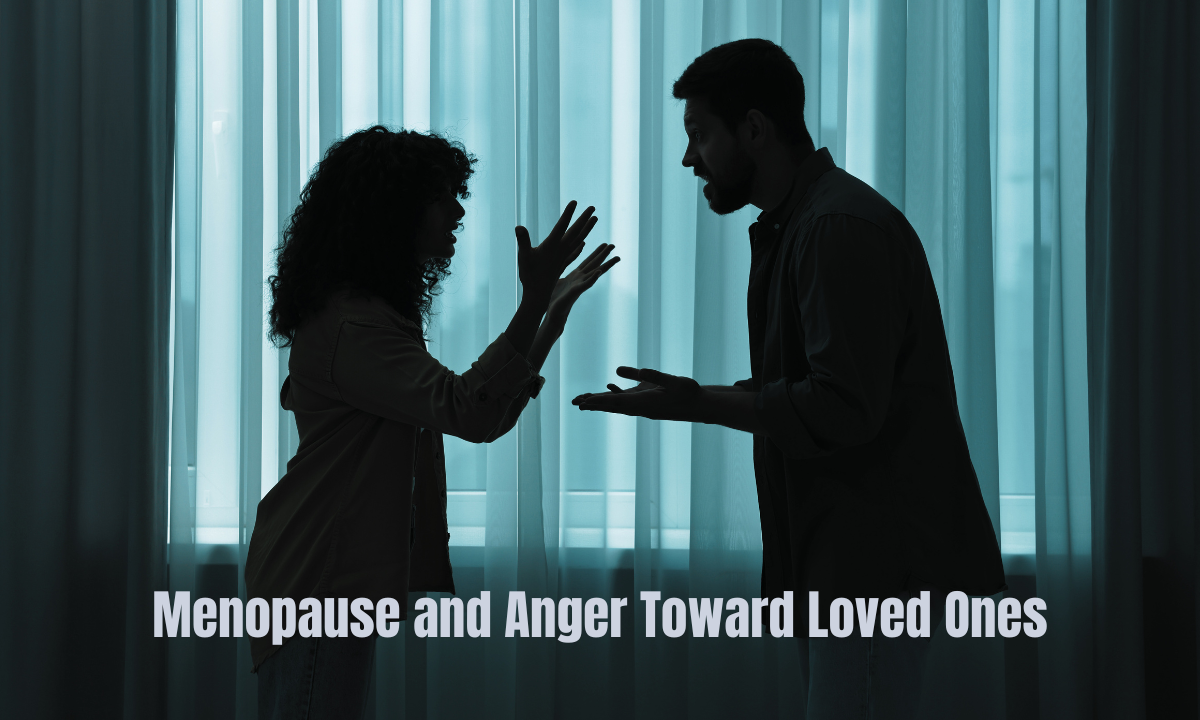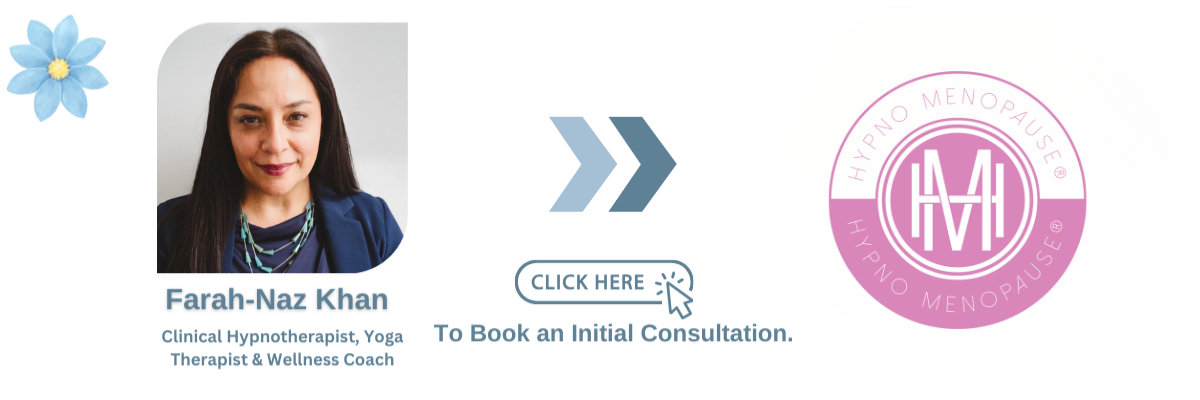Menopause and Anger Toward Loved Ones
Interlude Hypnotherapy

Published: April, 2025
Have you found yourself snapping at your partner over minor disagreements or feeling inexplicably irritated during menopause? You’re not alone. Many women experience heightened emotions during this stage of life, especially when it comes to their closest relationships. But why does menopause bring such turbulent feelings, and how can you address them without harming the bonds you cherish most?
While menopause is often characterised by hot flushes and sleepless nights, its profound emotional impact often flies under the radar. Relationships, particularly with spouses, can bear the brunt of these emotional shifts, leaving many women confused and struggling to maintain harmony at home. This article dives into the deep connection between menopause and anger toward husbands, the hormonal factors behind it, and practical ways to strengthen your relationships during this transition.
Why Does Menopause Affect Your Mood?
The emotional challenges of menopause can feel overwhelming, often surfacing as irritability, anger, or sadness. These mood changes are largely tied to fluctuating hormones. Oestrogen levels, which regulate serotonin (the “feel-good” brain chemical), drop significantly during menopause. This sudden hormonal drop creates a ripple effect that can heighten emotions, making even the smallest disagreements feel monumental.
Research shows this isn’t just a personal struggle but a shared challenge faced by millions. A survey conducted by Ipsos revealed that nearly half of UK women associate menopause with mood swings and heightened irritability. For many women, the anger feels sudden and uncontrollable, causing guilt or even instability in their relationships.
Add to this the physical symptoms of menopause, such as fatigue or night sweats that disrupt sleep, and you have a perfect storm for emotional turbulence. Without enough sleep, levels of patience and resilience drop significantly, leaving you more prone to irritation or frustration.
While hormones are a key factor, lifestyle stressors like work, raising children, or financial concerns compound the situation. Many women feel like they’re carrying an invisible weight during menopause, which can fuel anger or resentment, particularly if they feel unsupported by their loved ones.
The Emotional Toll on Relationships
The emotional impact of menopause doesn’t occur in isolation; it deeply influences relationships, particularly with spouses or partners. “Menopause and anger toward husbands” is a frequent concern voiced by those navigating this life stage. While they may not intend to lash out, women often find themselves directing their frustrations toward the people closest to them.
This isn’t surprising, as relationships often act as a mirror for our emotional struggles. A woman experiencing extreme irritability may feel like her partner isn’t doing enough to help or doesn’t understand what she’s going through. Small remarks or behaviours can easily be magnified, adding tension to conversations and creating fractures in communication.
Intimacy often takes a hit, too. Changes in “menopause and sex drive” are a natural result of a drop in hormones such as oestrogen and testosterone. Many women report feeling a lack of desire, which can create confusion or frustration in relationships.
For some, physical discomfort such as “painful sex menopause” further diminishes the spark in their love life. Vaginal dryness and reduced elasticity are common concerns linked to a decrease in oestrogen, creating discomfort or anxiety around sexual activity. This often leads couples to avoid intimacy altogether, which can unintentionally widen the emotional gap between partners.
Over time, unresolved emotional strain can lead to “menopause and depression.” The constant battle with mood swings, frustrations over intimacy, and guilt from potentially hurting loved ones can result in prolonged sadness or even feelings of isolation.
Understanding Anger and Finding Compassion
Anger is a natural emotion, but during menopause, it can feel excessive or out of character. It’s important to understand that anger itself isn’t inherently bad. Sometimes it acts as a signal that something deeper needs attention, whether that’s an unmet need or an unresolved feeling.
However, heightened anger during menopause often stems from a state of imbalance rather than specific triggers. Recognising this can help you approach your emotional state with more compassion and less self-criticism. Instead of holding onto guilt, remind yourself that the hormonal changes you’re experiencing aren’t your choice, and they don’t have to define your relationships.
Partners, too, have a role to play in understanding what’s happening. Open communication about how menopause affects you can prevent misunderstandings. Many women find it helpful to explain their symptoms to their spouses, focusing on how they can work together to better manage tension and emotional moments.
Practical Strategies for Emotional Management
Tackling the emotional turbulence of menopause requires a mix of personal strategies and relational tools. Here are actionable steps to help manage anger and improve communication with loved ones.
1. Take Care of Yourself First
Exercising self-care isn’t selfish; it’s necessary. Prioritising your well-being helps keep emotions in check and gives you more energy to maintain healthy relationships. Hormonal fluctuations may not be avoidable, but their effects can be mitigated.
Adopt a calming routine to start and end your day. Whether it’s yoga, meditation, or even 10 minutes of journaling, creating moments of quiet can ease emotional overload. You may also consider hypnotherapy, which has proven effective in reducing stress and rebalancing emotions during menopause.
Combining this with a menopause-friendly diet adds additional benefits. A “menopause diet UK” should include foods rich in phytoestrogens (such as flaxseeds and tofu) and omega-3 fatty acids to support hormonal balance and improve mood overall.
2. Communicate Openly and Honestly
Unspoken frustrations can turn into resentments. If you’re struggling emotionally, talking to your partner about it can reduce misunderstandings and foster unity.
Be specific about how you’re feeling and how the relationship can help you through it. For instance, instead of saying, “I’m always angry,” try something like, “Lately, I’ve been feeling more irritable, and I think it’s linked to my menopause. Can we talk about ways to support each other through this?”
Reassuring your partner that your mood changes are not a reflection of them can also soften any misinterpretation or defensive reactions on their end.
3. Address Intimacy Challenges
Challenges around intimacy are common, but they can be addressed with patience and effort. If “painful sex menopause” is affecting your relationship, speak openly with your partner and consider consulting a healthcare professional or hypnotherapist. Vaginal moisturisers, lubricants, or hormone treatments can also alleviate physical discomfort, making intimacy more enjoyable again.
Additionally, reconnect emotionally with your partner beyond the physical side of intimacy. Shared activities, meaningful conversations, or even reliving joyful memories can reignite emotional closeness.
4. Seek Professional Support
Managing the emotional challenges of menopause, such as anger and mood swings, can feel overwhelming, but professional support can provide much-needed relief. At Interlude Hypnotherapy in Sheffield, Farah combines her expertise as a Certified Hypno Menopause Practitioner® with proven Cognitive Behavioural Therapy (CBT) techniques to help clients achieve emotional balance and regain control. With over 25 years of experience in holistic wellness, Farah offers a deeply personalised approach, blending Clinical Hypnotherapy, Psychotherapy, and mindfulness-based self-care practices to create lasting, positive change.
Her tailored sessions are designed to not only address the hormonal and emotional turbulence of menopause but also to empower you with practical tools for managing stress, improving communication with loved ones, and rebuilding harmony in relationships. Whether you visit for one-to-one therapy or prefer online sessions, Farah’s compassionate and client-focused methods aim to transform this life stage into an opportunity for growth and well-being.
5. Get Moving
Exercise isn’t just about physical health; it’s deeply connected to emotional well-being too. Engaging in regular physical activity reduces cortisol, the stress hormone, while stimulating feel-good endorphins. Whether it’s a brisk walk, Pilates, or a dance class, find something you enjoy and commit to moving your body regularly.
Turning a New Chapter Together
Menopause can feel like a test of endurance, particularly when its effects challenge your closest relationships. While it’s easy to focus on the strain, it’s worth remembering that this phase is also an opportunity to grow together as a couple. Many relationships emerge stronger when built on mutual understanding, communication, and trust during challenging times.
Anger and frustration may arise, but they don’t have to define your connections with loved ones. By practising self-care, keeping communication lines open, and seeking balance, you’ll find a way to manage emotions and strengthen bonds simultaneously.
Remember, this is a shared journey as much for your partner as it is for you. With empathy and effort, menopause can become a chapter of resilience, transformation, and deeper love.
Book your consultation today to take the first steps toward harmony and well-being.
➡️ To learn more about the various symptoms of menopause, important information, and how to manage it with ease, you can read the articles below.





